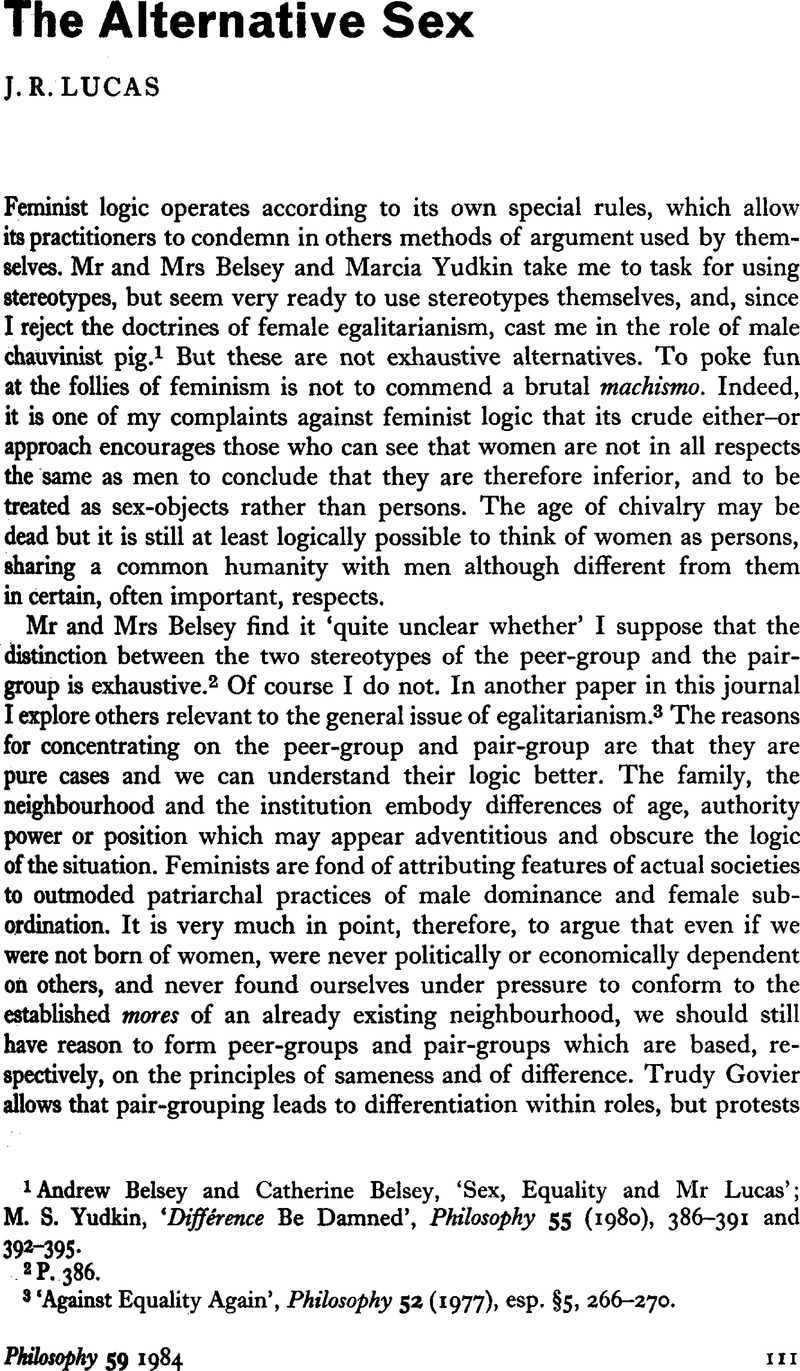No CrossRef data available.
Published online by Cambridge University Press: 30 January 2009

1 Andrew Belsey and Catherine Belsey, ‘Sex, Equality and Mr Lucas’; M. S. Yudkin, ‘Différence Be Damned’, Philosophy 55 (1980), 386–391 and 392–395.
2 P.386.
3 ‘Against Equality Again’, Philosophy 52 (1977), esp. §5, 266–270.
4 Trudy Govier, ‘Getting Rid of the Big Bad Wolf’, Philosophy 56 (1981), 258–261.
5 Jack Babuscio, We Speak for Ourselves: Experiences in Homosexual Counselling (London: 1976), 117-118, 123, 128.
6 ‘Because You Are a Woman’, Philosophy 48 (1973), 167.
7 On Justice (Oxford: 1980), 16, 262-263; ‘Equality’, in Education, Equality and Society (London: George Allen and Unwin, 1975), §III, 45–50.
8 St Matthew 22:30.
9 Mr and Mrs Belsey complain that I do not cite references, and question my assumptions. The literature is large, some of it controversial. The most easily accessible account is Eleanor E. Maccoby and Carol N. Jacklin, The Psychology of Sex Differences (Stanford University Press, 1974); and Eleanor E. Maccoby (ed.) The Development of Sex Differences (Stanford University Press, 1966). Evidence for men being stronger than women as well as for their being physically different generally is given in J. M. Tanner, Growth at Adolescence, 2nd ed. (Oxford University Press, 1962), Ch. VIII, esp. p. 202; and for their having different intellectual abilities in R. D. Brock and D. Kolakowski, ‘Further Evidence ofSex-linked Major-gene Influence on Human Spatial, Visualizing Ability’, American Journal of Human Genetics 25 (1975), 1–14, esp. pp. 10–11. A further account and possible explanation is given by J. A. Gray, “A Biological Basis for the Sex Differences in Achievement inScience’, in A. Kelly (ed.), The Missing Half: Girls and Science Education (Manchester University Press, 1981) 42–58. That sex is of fundamental biological significance is argued in Richard Dawkins, The Selfish Gene (Oxford University Press, 1976), Ch. 9.
10 ‘Vive la Différence’, Philosophy 53 (1978), 369–370; see more fully, J. R. Lucas, The Principles of Politics (Oxford University Press, 1966), §§3–4.
11 p. 260